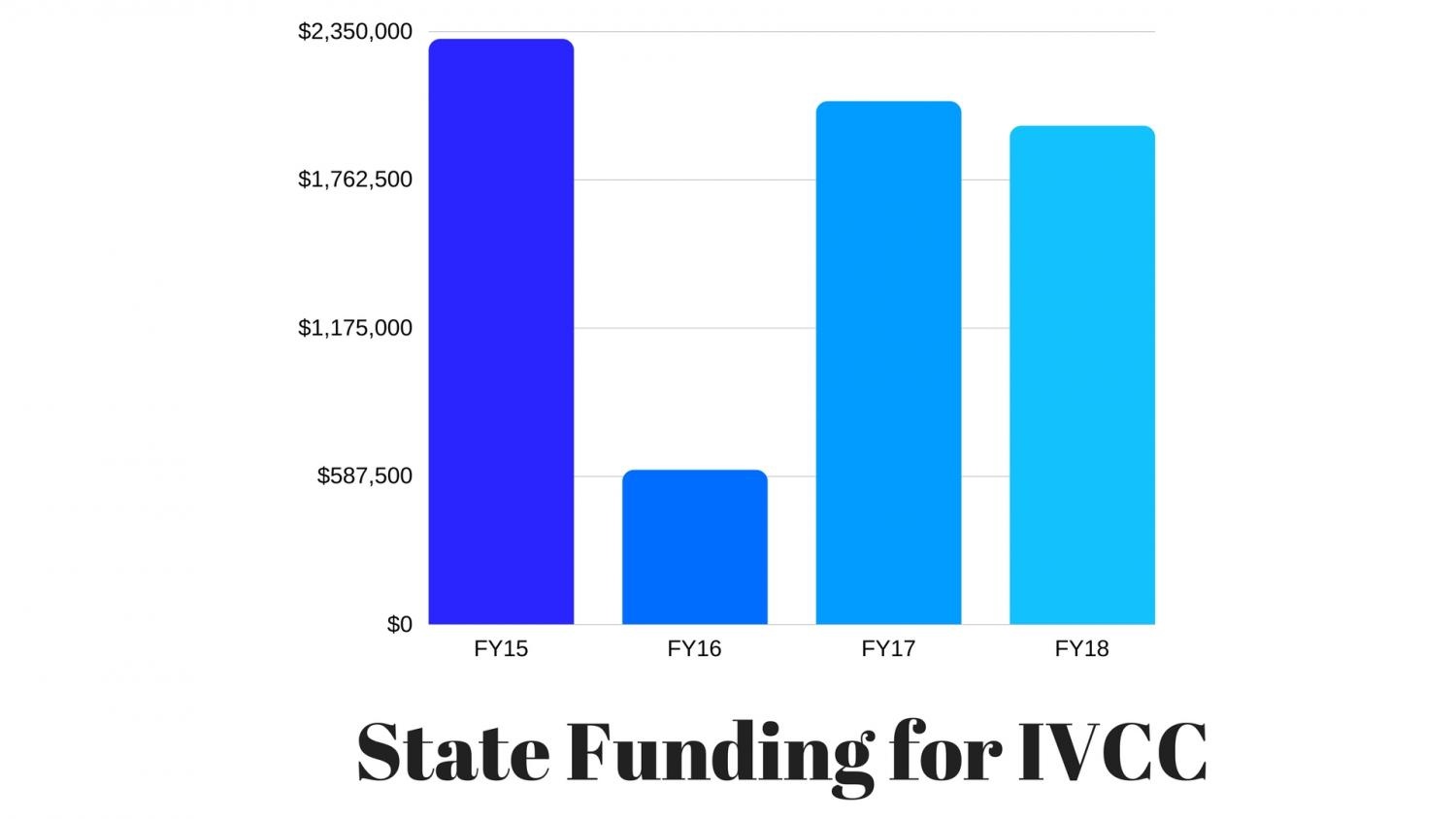State budget helps college’s finances, MAP
After a very lean year in 2016, state funding levels have been stabilized with the passing of a state budget in July.
August 31, 2017
IVCC is on more stable financial footing thanks to the state budget passed July 6, with the state covering MAP grants paid by the college during the years of budget impasse.
The budget’s funding of higher education allows the college to stop drawing operating expenses from dwindling reserves. Funding levels are lower than in fiscal year 2015, the last year with a budget.
This decreased funding level will require the college to depend more on property taxes and tuition than in previous budgets, but the college plans to focus on increasing enrollment to generate extra income, according to Cheryl Roelfsema, Vice President for Business Services and Finance at IVCC.
In addition to funding fiscal year 2018 MAP grants, the state is paying back IVCC what it spent covering the grants during the 2016 and 2017 fiscal years, Roelfsema said.
“Although I’m glad that MAP funding was included in the budget, I hope that operating funds remain a priority for the General Assembly and Governor as we march forward,” said IVCC president Dr. Jerry Corcoran.
IVCC operating funds used around $1,000,000 of reserves during the 2016 fiscal year, Roelfsema explained.
“As a financial officer, I would like to see those reserves rebuilt [sic] but we also need to provide educational opportunities for our district and increase our enrollments,” said Roelfsema.
The pressure is off for now, however there are still concerns about the stability of future state funding.
“The passing of the budget allows us to breathe a sigh of relief,” said Roelfsema, “but the State of Illinois has tremendous financial challenges and until these are resolved there is no assuredness of continued funding from the State.”
Corcoran is afraid that political disagreements will continue to put state education funding in danger.
“Unfortunately, yes, I have grave concerns that as we approach 2018 and the upcoming elections, the likelihood of political gridlock will increase again,” said Corcoran.
Corcoran expressed gratitude to local legislators who were receptive to IVCC’s needs throughout the years.
“I’m proud of the fact that our past and current legislators have always had an excellent track record for staying on top of issues affecting IVCC,” said Corcoran. “Both Senator Rezin and Representative Long have continued what was in place with their predecessors–former Senator Dahl and former Representative Mautino—that is feeling very comfortable calling me and/or visiting the college and asking how legislation that’s being considered impacts IVCC.”
The years with uncertain state funding were challenging for IVCC, but reserves allowed the college to maintain its programs.
“No programs were eliminated and there was no reduction in staff,” Roelfsema reflected. “As employees resigned or retired, those positions were evaluated to see if any of the responsibilities could be reassigned or processes streamlined. The first priority has always been the students and meeting their educational needs.”
Looking forward, Corcoran hopes community college funding will be recognized as a valuable way to stimulate the state’s economy.
“Community colleges have a great track record for directly affecting local economies and I think they are the best investment the state can make when searching for ‘engines of economic opportunity’ to promote growth,” said Corcoran.



